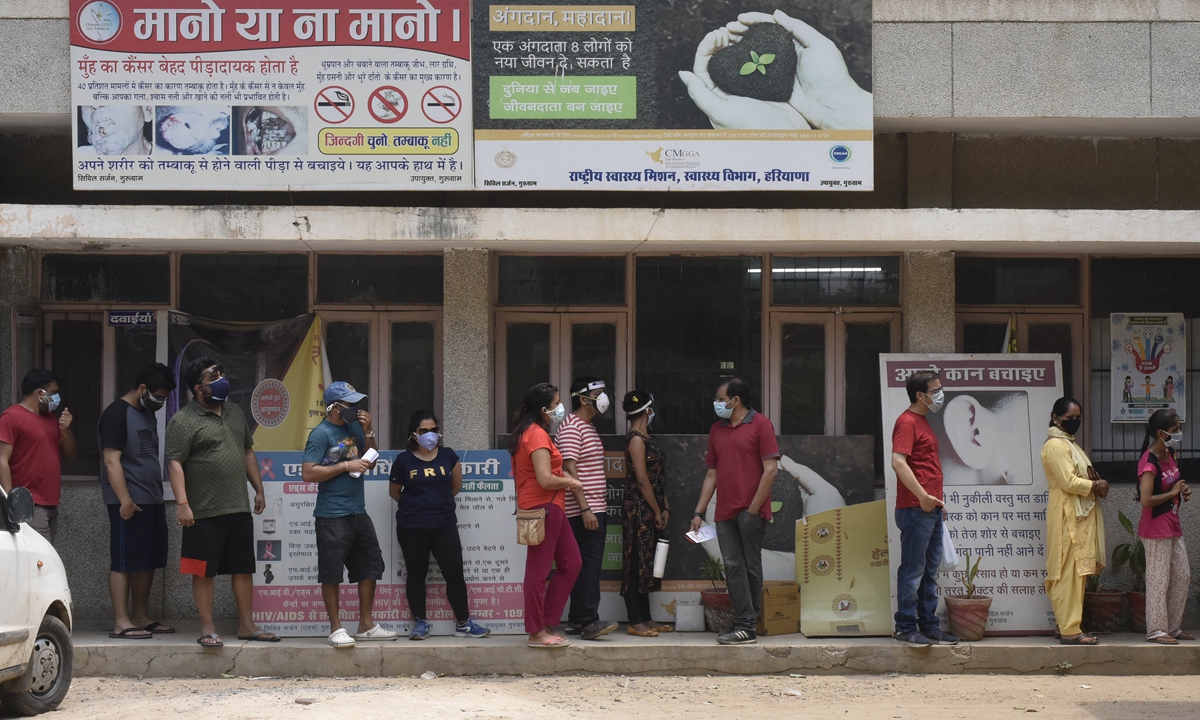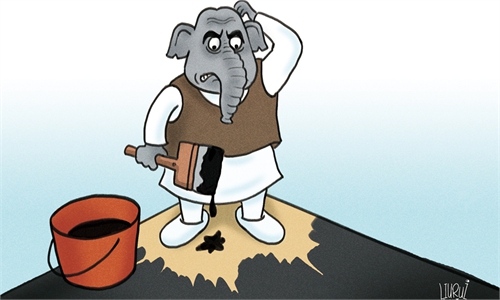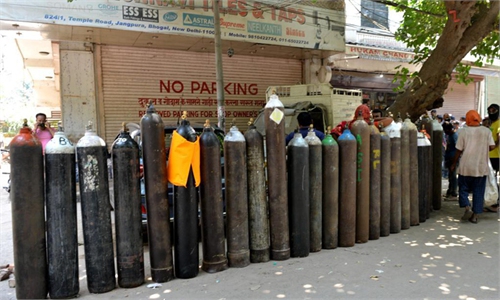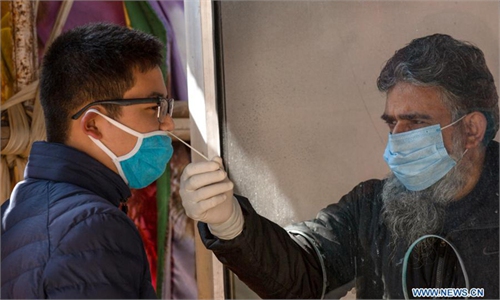
People register for Covid-19 vaccination at Tigra Urban Primary Helth Centre (UPHC), on May 7, 2021 in Gurugram, India. Photo: VCG
India urgently needs COVID-19 vaccines. The Modi administration has decided to authorize state governments and companies to purchase vaccines from abroad. But so far, it seems that no state has dared to import vaccines developed by China, as doing so has been regarded as a "political decision."India's Uttar Pradesh, the most populous state of the country, has reportedly launched a global tender for COVID-19 vaccines, with companies like Pfizer planning for bids. But according to The Indian Express, "those bidders requiring 'special cold storage condition' should either have their own cold chain transporting system or should have a 'proper contract' with an agent." This means it will involve huge costs for the bidders, and thus a deal will be difficult to reach.
Such being the case, will Uttar Pradesh import vaccines from China? A top local official closely involved in the state's epidemic management said, "We don't have any issue in procuring from anywhere. We just want the vaccine to protect our people. But this [getting from China] is a political decision and the Centre will take it, we shall follow whatever call is taken." The official's last sentence is clearly pivotal.
Some other states have used more direct words to object to vaccines developed by China. For example, in its global "Expression of Interest" for procurement of 10 million doses of vaccines for Mumbai, the Brihanmumbai Municipal Corporation included a condition that "bids from companies in countries that share land borders with India will not be considered."
I have to say that whether or not India buys vaccines from China is a "political decision," but whether China will sell vaccines to India is not. Instead, it is about humanitarianism, and it is business. Since the outbreak of the COVID-19 pandemic, China's export of anti-virus materials has placed humanitarianism at the top. China also abides by commercial ethics and rules. It has not imposed any ban for political matters. So China is magnanimous and outstanding. This also explains China's rapid development over the past few decades.
But I haven't heard of any Chinese vaccine manufacturers raise requests to export their vaccines to India. To my surprise, when untold masses of Indian people died from the virus, India's choice of vaccines is still being based on political correctness.
"Politics commands everything" is a common phrase used by Chinese people when reflecting on the Cultural Revolution (1966-76). In recent years, we have witnessed the US and India, the world's two biggest democracies, giving us a more vivid "performance" of such a phrase. Western and Western-like systems must be running on low internal dynamics for these countries to be much busier with politics than China which has been focusing on reform and opening-up.
India has imported a lot of oxygenerators and ventilators from China. Maybe out of lack of choice, India has to choose equipment from China without being "politically correct." However, as New Delhi still has some options regarding COVID-19 vaccines, politics has come to command again. Anyway, its decision should be respected. Human lives matter, and it is hoped that Indian people can be vaccinated by the Pfizer vaccines that need to be stored at -70 C.
Meanwhile, Chinese vaccines are already in short supply. If some Indian states hadn't actively rejected them, the Chinese probably wouldn't have thought at this point that there should be an Indian market for Chinese vaccines. And that's not saying words of anger.
The author is editor-in-chief of the Global Times. opinion@globaltimes.com.cn




